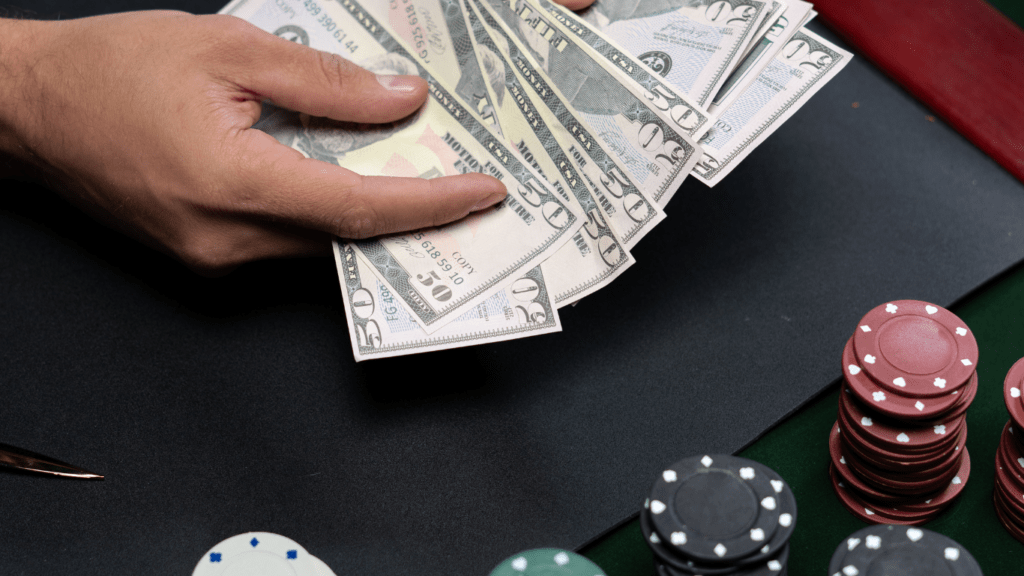Understanding the Thrill of Gambling
Experiencing excitement while gambling is common. Anticipation builds with every turn of a card or spin of a wheel. Analyzing odds and strategizing draws me in further. The possibility of winning evokes a rush that’s hard to replicate elsewhere. This thrill often enhances the social aspect.
Interacting with others at poker tables or engaging in friendly banter at slots creates a lively environment. Recognizing these dimensions helps me enjoy gambling responsibly, staying focused on the game’s enjoyment rather than potential monetary gain. Balancing thrill and mindfulness ensures gambling remains a fun pastime.
Setting Realistic Expectations
Establishing realistic expectations in gambling helps control desires and maintain enjoyment. Knowing what’s possible versus what’s probable is key to a responsible experience.
Recognizing the Entertainment Value
I focus on the entertainment aspect of gambling, not just potential winnings. Games like:
- poker
- slots
offer fun through their design, interaction, and skill challenges. Recognizing these elements helps me appreciate gambling as a leisure activity rather than a profit-driven venture. For example, attending a poker night emphasizes camaraderie and thrills over financial rewards.
Knowing Your Limits
- I set personal boundaries before starting any gambling session.
- This includes deciding on a budget and sticking to it.
- If I allocate $50 for a night out, I ensure not to exceed this amount.
- Understand that losses are a part of gambling, and approaching them as part of the entertainment cost rather than a financial setback prevents overindulgence.
- Managing my bankroll responsibly ensures that I enjoy gambling without stress or regret.
The Importance of Bankroll Management

Managing your bankroll is crucial for enjoying gambling without greed taking over. It ensures you remain in control and view gambling as a leisure activity, not a financial burden.
Creating a Budget
I establish a budget to maintain control over my gambling activities. First, I determine how much discretionary income I can allocate. This ensures my essential expenses and savings goals are unaffected. For instance, if my monthly entertainment budget is $200, I might set aside a portion for gambling. It helps me stick to my plan and prevents overspending.
Sticking to Your Limits
Setting limits before gambling keeps my enjoyment in check. Once I reach my predetermined limit, I stop playing to avoid emotional decisions. If a gambling session doesn’t go well, accepting losses rather than chasing them is vital. For example, when I reach my budgeted amount for a casino visit, I pause to maintain my financial stability. By adhering to these boundaries, I ensure gambling remains a source of fun, not stress.
Developing a Balanced Mindset
Enjoying gambling while avoiding greed requires a balanced mindset. I focus on entertainment, rather than seeing it as a profit-driven activity.
Focusing on Fun, Not Profits
Viewing gambling as a leisure activity keeps my priorities in check. Instead of chasing big wins, I enjoy the process and social interactions. Attending a poker night offers camaraderie and excitement, so I approach it as a chance to unwind, not as a financial endeavor. Identifying these moments as opportunities for fun helps me resist the urge to bet beyond my means.
Controlling Emotional Responses
By managing my emotions, I maintain control during gambling sessions. Wins and losses trigger excitement and disappointment—both are natural but need regulation. If I face a loss, I treat it as an expense for entertainment, preventing emotional volatility. Practicing techniques like deep breathing or focusing on positive interactions ensures my emotions don’t drive impulsive decisions. This emotional awareness lets me keep gambling a pleasurable experience rather than a source of stress.
Responsible Gambling Strategies
Responsible gambling requires maintaining control over time and actions to enjoy the experience without succumbing to greed. Setting boundaries helps ensure that gambling remains a source of entertainment.
Setting Time Boundaries
Establishing time limits prevents gambling from consuming more hours than intended. I set specific start and end times for each session, enabling me to engage responsibly without affecting other life commitments. For instance, I might limit my casino visit to two hours, allowing me to experience the excitement while keeping my schedule in check. By adhering to a predetermined timeframe, I keep the activity enjoyable and reduce the risk of impulsive decisions.
Avoiding Chasing Losses
Chasing losses can lead to increased financial and emotional stress. When I experience a loss, I focus on accepting it as part of the gambling experience instead of trying to win it back. I remind myself of my entertainment intent, incorporating losses into my overall budget. This mindset helps me maintain control and view gambling as a leisure activity rather than a remedy for financial setbacks. By recognizing that losing is part of gambling, I avoid irrational decisions driven by the desire to recover losses.

 Christopher Walkerashed, the founder of Wild Gamble Greed, is a trailblazer in the high-stakes gambling industry. With a passion for the excitement of big bets, he created a platform that caters to seasoned players, offering expert insights into high-stakes sports betting, poker, and slot machines with massive payouts. Walkerashed is equally committed to promoting responsible gambling, ensuring players have the tools to balance ambition with control. Through his innovative vision, Wild Gamble Greed has become a premier destination for high-rollers seeking to gamble smartly and responsibly.
Christopher Walkerashed, the founder of Wild Gamble Greed, is a trailblazer in the high-stakes gambling industry. With a passion for the excitement of big bets, he created a platform that caters to seasoned players, offering expert insights into high-stakes sports betting, poker, and slot machines with massive payouts. Walkerashed is equally committed to promoting responsible gambling, ensuring players have the tools to balance ambition with control. Through his innovative vision, Wild Gamble Greed has become a premier destination for high-rollers seeking to gamble smartly and responsibly.